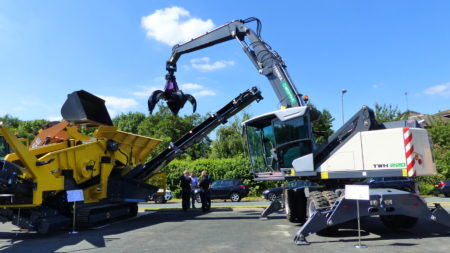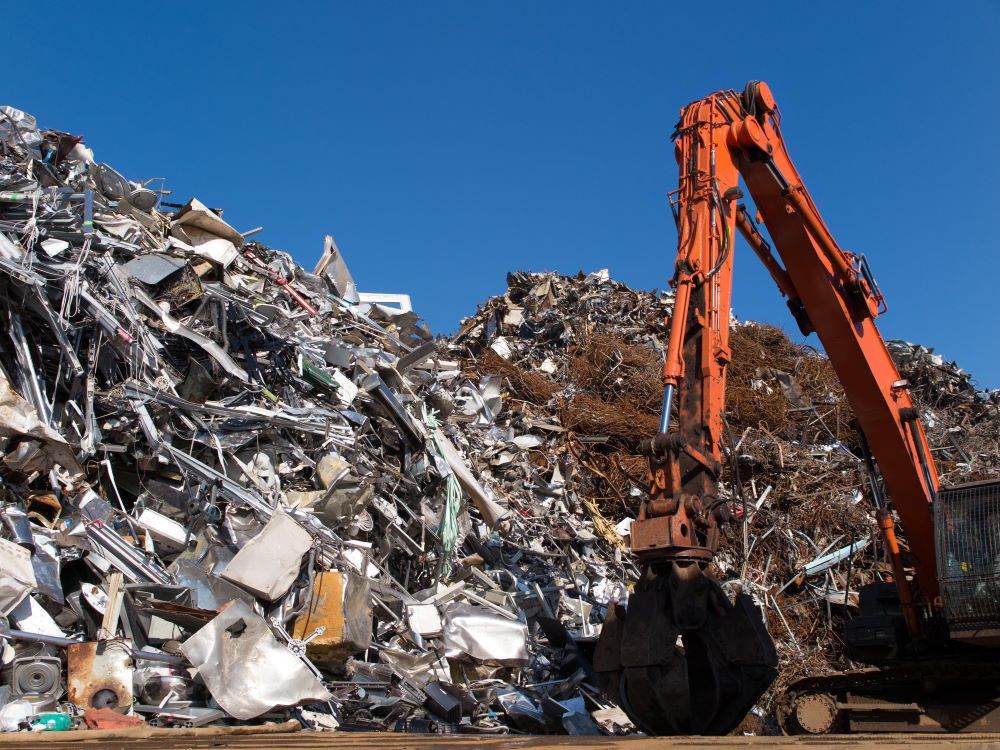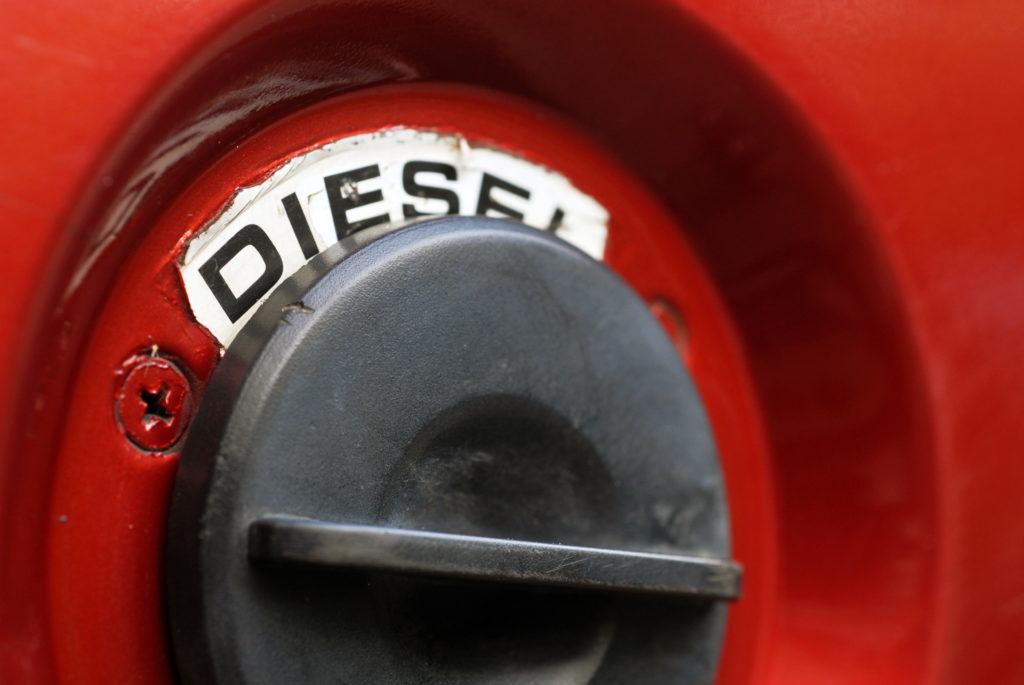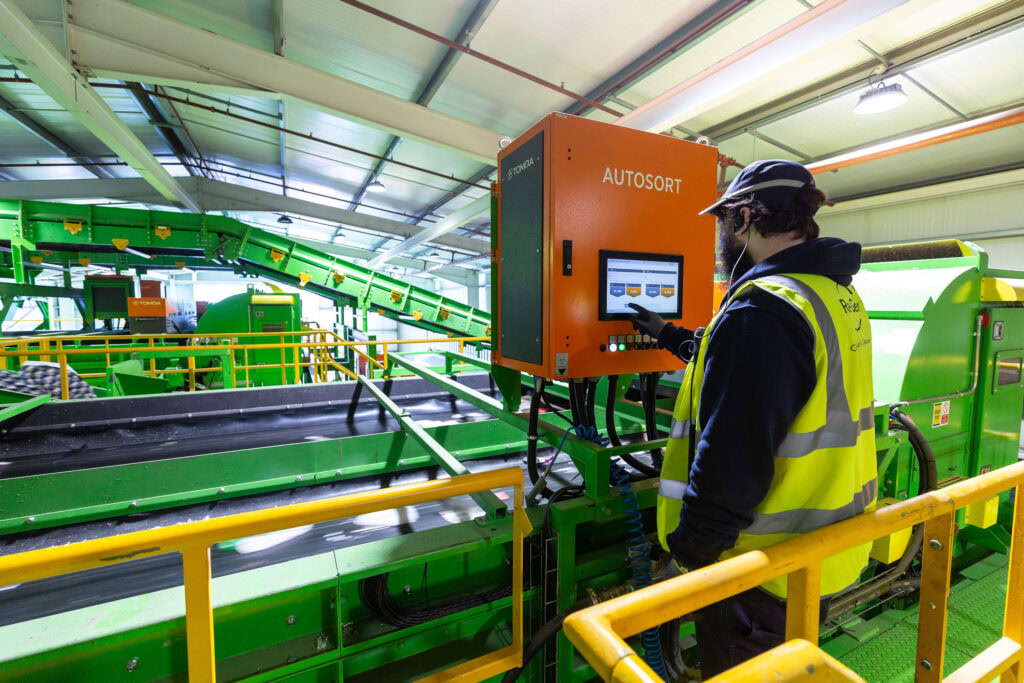Waste sector trade associations have expressed concerns about the timing of the Treasury’s plans to scrap the industry’s eligibility to use red diesel, with several even comparing the reforms to a “stealth tax”.
In 2020, the government said it would reduce the list of businesses entitled to use red diesel, which many operators use to power machinery, from April 2022.
HMRC explained that the changes would ensure that most operators would use fuel taxed at the standard rate for diesel from April 2022.
“Removing most red diesel entitlements will also help to ensure that the tax system incentivises users of polluting fuels like diesel to improve the energy efficiency of their vehicles and machinery, invest in cleaner alternatives, or just use less fuel,” HMRC said.
A Treasury spokesperson told letsrecycle.com: “Our changes to red diesel entitlements, set out at Budget 2020, will mean that from April most current users of red diesel in the UK will need to use diesel taxed at the standard fuel duty rate, like motorists, more fairly reflecting the harmful impact of the emissions they produce.”
Alternatives
One major concern in the waste sector is how quickly alternative electric-powered equipment and more efficient diesel machines can be developed. And, there are warnings that costs will be passed on to customers.

UROC, a trade body representing independent and SME waste management companies, told letsrecycle.com that it was liaising with other trade associations to send a co-signed letter to the Treasury and ministers urging them to roll out the reforms in a “phased approach”.
However, the Environmental Services Association (ESA), the trade association representing the private waste sector, said it was “optimistic” that alternatives would come on the market in the next few years.
Protests from the waste sector have thus far fallen on deaf ears, with the Treasury insisting it has not found “compelling evidence” that scrapping the lower rate of red diesel would increase the cost of recycling (see letsrecycle.com story).
Waste management
There are a range of views across the sector as to the impact of the ending of the red diesel tax concession.

One waste management company told letsrecycle.com that it would push up the cost of running transfer station vehicles in particular, while the impact on customers was highlighted by FCC Environment.
A company spokesperson said that while FCC was “well-placed” to deal with the reforms, the removal of the lower rate of fuel duty would lead to higher prices for the end customer.
They added: “Without pressure on plant manufacturers to design alternative fuel vehicles that meet the needs of our sector, we will be unable to drive the move to alternative fuels that this subsidy removal is seeking to effect as there are simply not the alternative fuel vehicles on the market.”
There are several ongoing trials of electric plant within the sector, and some businesses have used electric grabs for a while.
However, like-for-like alternatives for equipment such as landfill compactors, dozers, and shovels do not yet exist, some in the sector warn.
Specialist vehicles and applications
And, despite optimism about future alternatives, Jacob Hayler, the ESA’s executive director, said his association voiced concerns during the Treasury’s public consultation that the reforms would simply add to costs and not drive a transition away from fossil-based fuel sources for the specialist vehicles and applications which use red diesel.

He said: “These include the types of mobile plant found at transfer stations and waste processing sites, as well as back-up generators and start-up fuel for energy from waste plants.”
Mr Hayler added: “Decarbonising these vehicles and applications is challenging and won’t be driven by the economics of this tax change alone, but we are optimistic that, through collaboration between operators and vehicles suppliers, through R&D with trials being widely facilitated by our members, and through new procurement policy drivers, we will start to see viable solutions come to market over the next few years, contributing to our sector’s pursuit of net-zero by 2040.”
The ESA has worked with HMRC to develop practical guidance for operators in preparation for the transition in April.
Letter
Leading the resistance to the changes, Jenny Watts, UROC’s chief executive, told letsrecycle.com that her organisation’s co-signed letter to the Treasury was a “last-ditch attempt” to get the government to understand the significance of the reforms, which she said could be the “final nail in the coffin” for many businesses.

Ms Watts said her organisation’s suggested approach was a phased implementation over a number of years.
“As we saw with landfill tax, having a financial driver to stimulate change can and does work, but this should be a gradual process with incremental year on year increases, much in the same way that landfill tax was introduced,” she said.
She added: “When the changes to red diesel were first touted, it was in the budget of April 2020. We are now in a completely different economic climate, and this could be disastrous for many waste and resource operators and result in unintended consequences actually impacting the environment, such as increased fly tipping and reduced recycling.
This is in effect a stealth tax in its current form
- Jenny Watts, UROC chief executive
“We are not against the environmental credentials of removing the lower rate, but this is in effect a stealth tax in its current form, the reality being that in the absence of any realistic alternatives currently available the same amount of diesel will still need to be used for the foreseeable future, to the detriment of businesses, employment, and moving up the waste hierarchy.”
‘Stealth tax’
Another trade body to describe the reforms as a “stealth tax” was the British Metals Recycling Association (BMRA).

The BMRA has calculated that the loss of the sector’s entitlement to use red diesel will cost its members between £50,000 and £1.2 million, depending on the size of the companies and the number of sites they run.
Antonia Grey, the BMRA’s head of policy and public affairs, told letsrecycle.com that her association had “repeatedly” told the Treasury that the removal of the entitlement was tantamount to a stealth tax.
She said: “The Treasury’s insistence that the move is meant to incentivise the switch to ‘cleaner alternatives’ is illogical given that plant powered by cleaner alternatives do not exist, so the sector will continue to use regular diesel.
“Even if there were robust enough alternatives, some 30% of members are neither connected to, nor can draw enough power from, the National Grid.”
Ms Grey said the BMRA would continue to lobby the government for an extension.
Timing
The Vehicle Recyclers’ Association (VRA) also expressed concerns about the timing of the reforms, suggesting it might be “prudent” to demonstrate greater flexibility by delaying the measure for a further 12 months or by “softening the blow” with concessions in other areas.

However, the VRA said it supported the government’s commitment to reducing carbon emissions, improving air quality, and combatting the “illegitimate” use of red diesel while attempting to “rebalance the books”.
Chas Ambrose, the VRA’s secretary, told letsrecycle.com: “Electrification in the waste industry is still very much in its infancy and in many cases cost effective alternatives to, in particular, non-road diesel plant are not available.
“Forcing the waste industry to use ‘white’ diesel will simply put many businesses under further strain and will of course ultimately mean that increased costs will simply be passed on to customers, clients, and the public.”
Five-year phase-in period
The Wood Recyclers Association (WRA) said it called for a five-year phase-in when the Treasury consulted on the reforms.

Wood recyclers often power machinery such as shredders with red diesel, and businesses are often located in rural locations with less access to power.
While it said nobody could argue with the “logic” behind the plans, the WRA claimed the reforms have arisen at a “terrible time”, with companies battling inflation and other rising costs.
Julia Turner, the WRA’s executive director, told letsrecycle.com: “Our members are trying to prepare for this, and we have been supporting them looking at alternative fuels and developments in equipment.
It is completely the wrong time for this to come into force and could jeopardise businesses in our sector
- Julia Turner, WRA executive director
“However, the absence of realistic alternatives, together with some of our member sites being situated in locations where it is simply not possible to have access to electricity as well as inflated energy, labour and transport costs, mean that it is completely the wrong time for this to come into force and could jeopardise businesses in our sector.”
Mrs Turner urged the Treasury to reconsider its belief that there was no evidence the reforms would impact recycling.










Subscribe for free